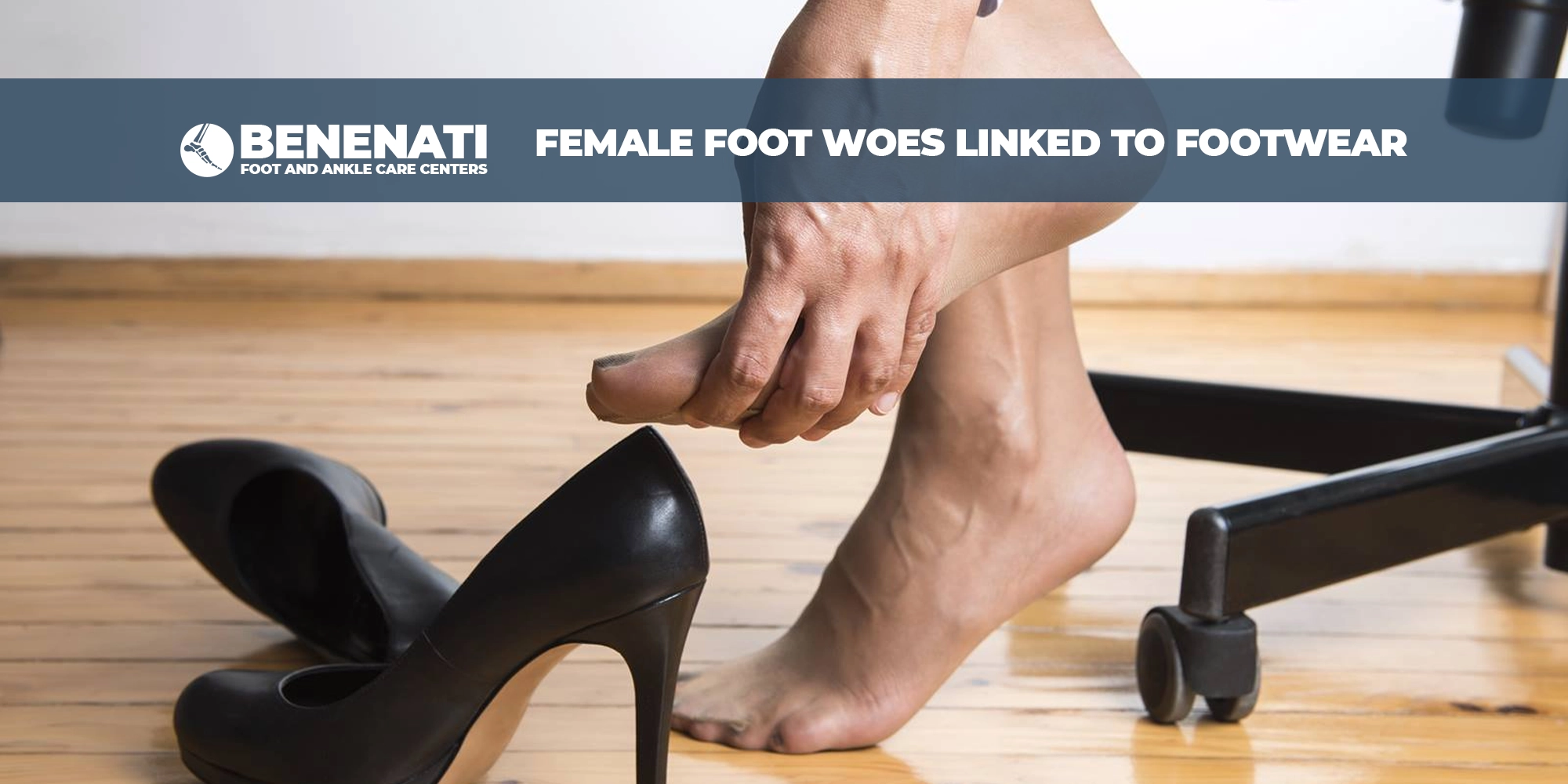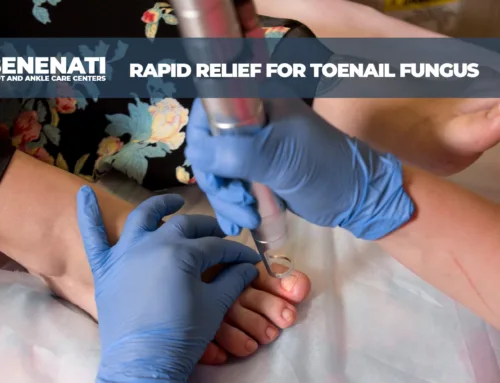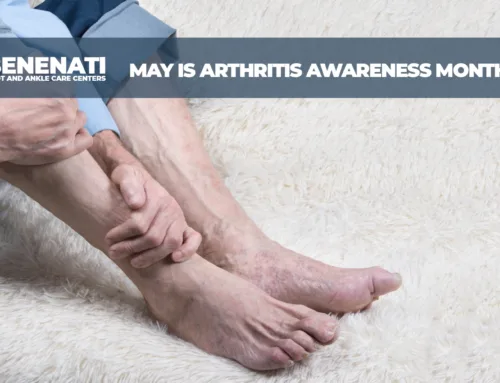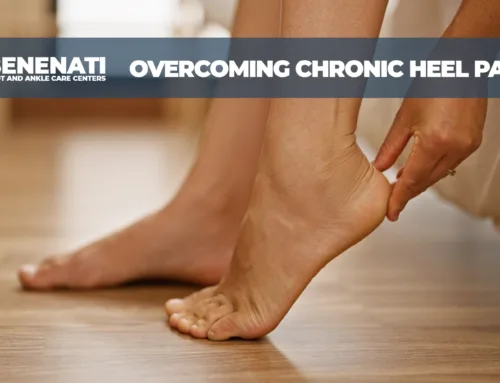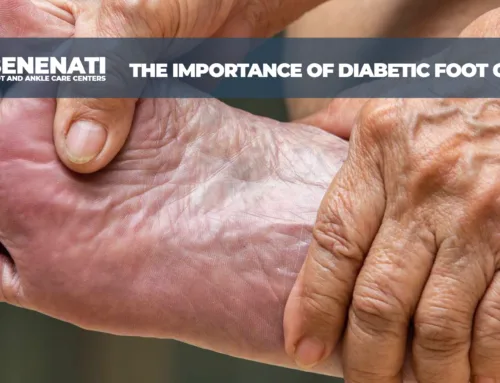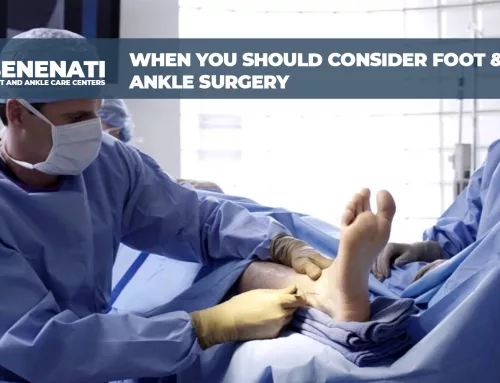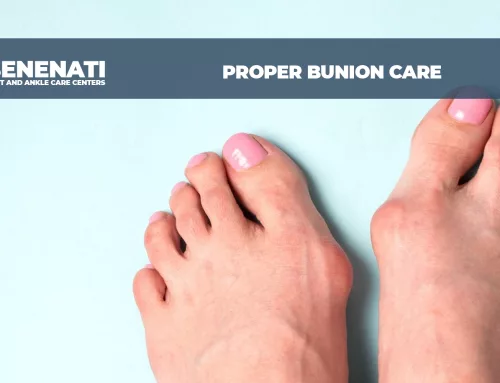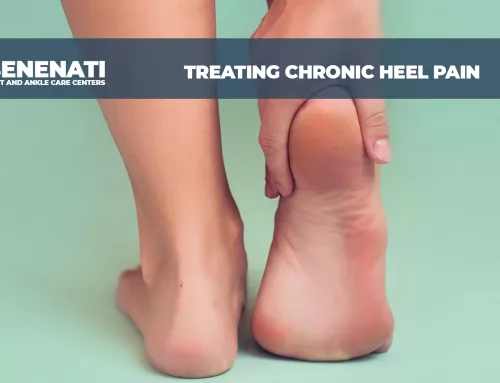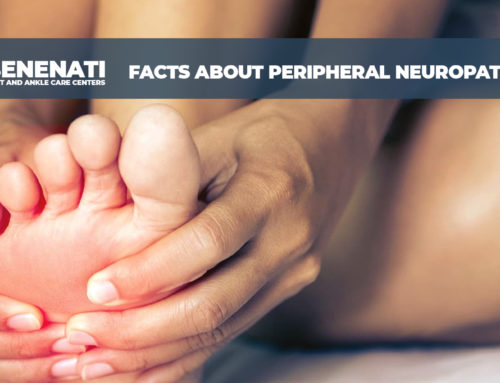At Benenati Foot & Ankle Care Centers, we want to help Macomb County women succeed in every way by examining common female foot problems that result from footwear choices.
Footwear Fouls
There are several ways that shoe choice can negatively impact your feet. These include:
- Shoes that are too small. Some studies estimate that as many as 90% of women’s shoes are too small for their feet. Foot size can increase as you age, and ligaments and muscles naturally lose elasticity causing your foot to spread. Weight gain can also result in a bigger foot size.
- High heels. Although a fashion staple for decades, heels higher than two inches put your feet at an abnormal angle and apply pressure on the forefoot and toes. Women who frequently wear heels eventually end up with permanent changes in their feet and increased pain.
- Styles with narrow toe boxes. Shoes that squeeze toes together also can force them to move out of place and leads to deformities.
- Flats. Shoes that are completely flat, without adequate (or any) arch support, put much strain on the heels and arches.
Some of the common foot problems that can happen due to one or a combination of the above factors are:
- Bunions, hammertoes, claw toes, and other toe deformities
- Plantar fasciitis
- Flat feet
- Ingrown toenails
- Morton’s neuroma
- Ankle sprains and chronic weak ankles
Shoe Tips for Healthier Feet
You can take several steps when evaluating your current footwear wardrobe or buying new footwear.
- Look for signs of wear. Shoes have a lifespan. You should discard shoes with obvious signs of deterioration, such as tears, worn soles, or stretched-out backs. Internal components of shoes will break down as well. Check the insoles for compaction. Be aware you should replace shoes used for running or walking every 300-500 miles regardless of appearance.
- Get professionally measured. It’s good to get your feet professionally measured periodically to make sure your size hasn’t changed. Buy shoes in person. Try on both shoes and take some time to walk around, and make sure they don’t pinch or rub anywhere.
- Consider custom orthotics. For some chronic conditions, our podiatrists, Dr. Anthony Benenati, Dr. Neil Shaw, and Dr. McKenna Green, may prescribe a custom orthotic to wear inside your shoes to make them more comfortable and help correct a biomechanical defect.
If you find your feet hurt more often, contact our Macomb (586) 416-3668, St. Clair Shores (586) 779-6140, and Warren (586) 756-3338 offices for an appointment and discuss with the foot doctor whether or not your shoes may be harming your feet.
